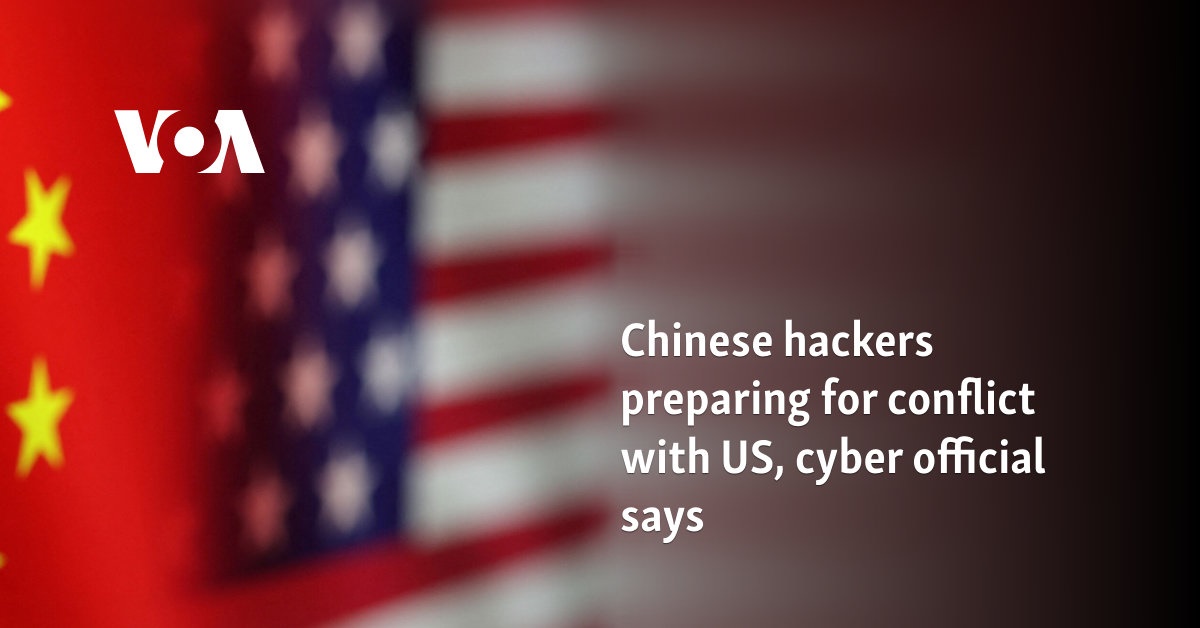Chinese hackers are positioning themselves in U.S. critical infrastructure IT networks for a potential clash with the United States, a top American cybersecurity official said Friday.
Morgan Adamski, executive director of U.S. Cyber Command, said Chinese-linked cyber operations are aimed at gaining an advantage in case of a major conflict with the United States.
Officials have warned that China-linked hackers have compromised IT networks and taken steps to carry out disruptive attacks in the event of a conflict. Their activities include gaining access to key networks to enable potential disruptions such as manipulating heating, ventilation and air-conditioning systems in server rooms, or disrupting critical energy and water controls, U.S. officials said earlier this year.
Beijing routinely denies cyber operations targeting U.S. entities. The Chinese Embassy in Washington did not immediately respond to a request for comment.
Adamski was speaking to researchers at the Cyberwarcon security conference in Arlington, Virginia. On Thursday, U.S. Senator Mark Warner told The Washington Post a suspected China-linked hack on U.S. telecommunications firms was the worst telecom hack in U.S. history.
That cyber espionage operation, dubbed “Salt Typhoon,” has included stolen call records data, compromised communications of top officials of both major U.S. presidential campaigns before the November 5 election, and telecommunications information related to U.S. law enforcement requests, the FBI said recently.
The FBI and Cybersecurity and Infrastructure Security Agency are providing technical assistance and information to potential targets, the bureau said.
Adamski said Friday that the U.S. government has “executed globally synchronized activities, both offensively and defensively minded, that are laser-focused on degrading and disrupting PRC cyber operations worldwide.”
Public examples include exposing operations, sanctions, indictments, law enforcement actions and cybersecurity advisories, with input from multiple countries, Adamski said.








